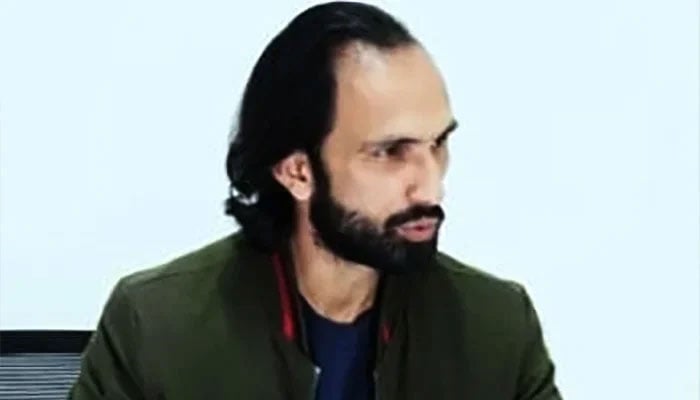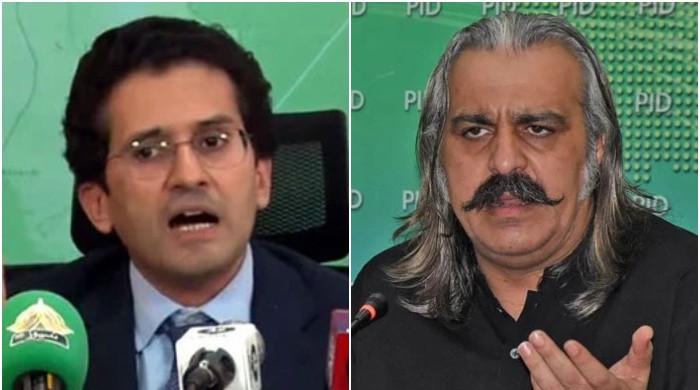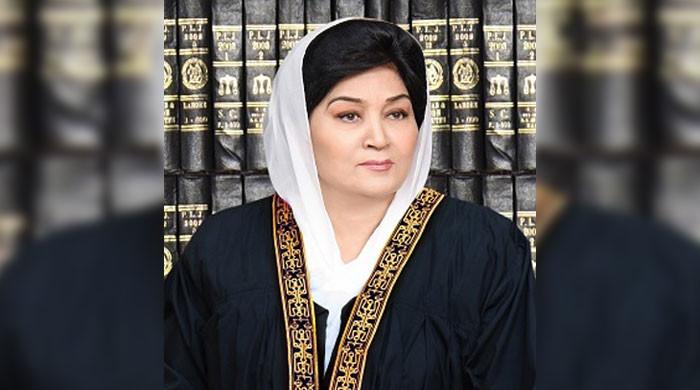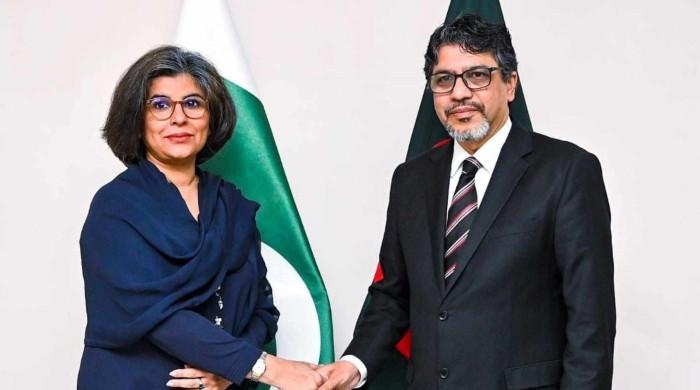IHC orders IO to record poet Ahmed Farhad's statement before magistrate
Judge disposes of petition seeking poet's recovery after his whereabouts were ascertained in the wake of his arrest
June 07, 2024

- "I know how to get my orders implemented," says Justice Kayani.
- Judge to ask CJ to form larger bench on missing person's issue.
- Poet Ahmed Farhad's wife had moved IHC for husband's recovery.
ISLAMABAD: Justice Mohsin Akhtar Kayani of the Islamabad High Court (IHC) Friday ordered the investigating officer of Loi Bhir police station to record the Kashmiri poet Ahmed Farhad's statement under Section 164 of the Code of Criminal Procedure (CrPC) before a judicial magistrate.
Following the order, the judge disposed of the petition seeking the poet's recovery after his whereabouts were ascertained following the confirmation of his custody with the police in Azad Jammu and Kashmir.
Justice Kayani, who was hearing the plea filed by the poet's wife Urooj Zainab, told the petitioner to refer to the court again if they feel the need.
"I know how to get my orders implemented," the judge said.
Zainab had moved the IHC seeking her husband's recovery along with requesting the court to identify, investigate, and prosecute those responsible for his disappearance.
The poet remained missing for 15 days before Attorney General for Pakistan, Mansoor Usman Awan, on May 29, in response to IHC's directions to ensure his recovery, said Farhad was arrested and in AJK police's custody.
The poet was arrested and transferred to Muzaffarabad from DhirKot under multiple sections of the Anti-Terrorism Act (ATA). Known for his defiant prose, the poet's matter came into the spotlight after he allegedly went missing during protests in AJK in May.
Human rights lawyer Iman Mazari appeared before the court as the petitioner's counsel, while journalist Hamid Mir appeared as a judicial assistant.
Additional Attorney General Munawwar Iqbal Dogal and Assistant Attorney General Barrister Usman Ghumman were also present in the court.
During the hearing of the case, Mazari told the IHC that the anti-terrorism court (ATC) in Muzaffarabad rejected the poet bail plea. Farhad wife had told journalists that the court did not disclose the details regarding the rejection of the bail.
Mazari told the court that the petitioner is currently challenging the bail application on a higher forum.
Justice Kayani asked the lawyer; "Is there any other case on Ahmed Farhad?"
The lawyer said: "First a case was filed and later another was said to have been filed."
"I think his problems are increasing. It is now believed that he is in judicial custody," said the judge. He added that if the police detains someone during the trial and does not present them for two days, then the trial is concluded.
Justice Kayani questioned about the poet's whereabouts before his arrest, stating that the issue pertains to enforced disappearance.
"If the abductee is recovered, the plea of habeas corpus is dismissed. They say that instructions to identify the kidnappers should also be issued," the additional attorney general told to the court, adding that this matter will be revealed during investigation.
The AAG said that the poet is now in judicial custody and a statement under Section 161 has been recorded.
Justice Kayani asked the AAG to show if the investigating officer went to Kashmir and recorded Farhad's statement.
"It is written that I am mentally and physically unable to give a statement. It is also written that he will appear in the court himself or give a statement through a lawyer," remarked Justice Kayani.
The judge also said he is writing about the matter to the chief justice, requesting him to form a larger bench on all missing persons cases.
The judge added that he is sending the matter to the larger bench, so that if the position of one judge is different, others can also see it.
"The rest of the members may not agree on summoning the heads of the intelligence agencies," said the judge.
He also remarked about sending the matter to the committee on how law in Islamabad should be enforced. "Respect the law, no one is above the law including judges."
The IHC judge said that the court is always standing for the protection of the poet's rights. "The investigation will proceed as a result of Ahmad Farhad's statement before the magistrate."
He remarked that institutions should work within their limits.
The court will ban in-camera proceedings and reporting on matters of national security, Justice Kayani said.











